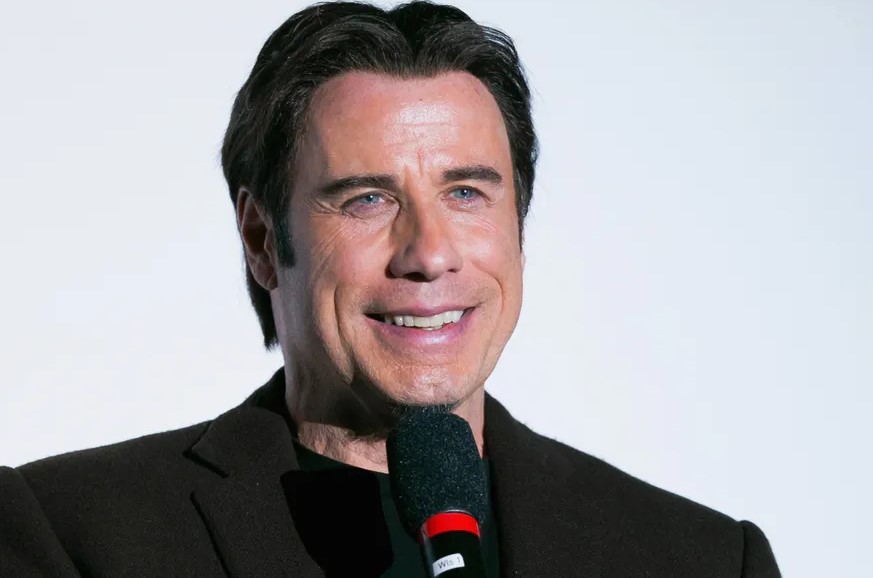John Travolta is a prominent American actor, singer, dancer, and producer, with a net worth of $250 million. His career spans over several decades, during which he earned widespread fame for his versatility and ability to take on varied roles. He first gained significant attention in the 1970s, particularly for his starring roles in Saturday Night Fever and Grease. These iconic films propelled him into the limelight, making him a cultural symbol of the disco era and the musical genre. His performances in these films showcased not only his dancing skills but his depth as an actor, which helped him secure a lasting place in Hollywood history.
Despite early success, the 1980s saw a dip in his career, with a few films failing to make the impact of his previous hits. However, Travolta’s resilience in the industry allowed him to stay relevant and continue working during this time. The 1990s marked a dramatic comeback, starting with his role in Quentin Tarantino’s Pulp Fiction (1994). This film not only revitalized his career but also reintroduced him to younger audiences, establishing him as a leading actor in Hollywood once again.
Travolta’s career saw further diversification with roles in a variety of genres, including action films like Face/Off (1997), comedies such as Get Shorty (1995), and dramatic pieces like Primary Colors (1998). His ability to play such varied roles helped him maintain his standing as one of Hollywood’s most bankable stars. Over the years, he has continued to deliver memorable performances in films like Ladder 49 (2004), Hairspray (2007), and Swordfish (2001), proving his lasting appeal in the entertainment industry.
Earnings from Notable Films
John Travolta’s career has been financially rewarding, with him earning substantial salaries for many of his roles. His earnings from the film have added up to hundreds of millions of dollars. In 1994, he earned $150,000 for his role in Pulp Fiction, a small sum compared to his future earnings, but it marked a turning point for his career. Following the success of Pulp Fiction, Travolta’s salary began to skyrocket, and by the mid-1990s, he was commanding $20 million per movie.

Here are some notable salaries from his filmography:
- Pulp Fiction (1994) – $150,000
- Get Shorty (1995) – $6 million
- Broken Arrow (1996) – $7 million
- Phenomenon (1996) – $8 million
- Michael (1996) – $12 million
- Face/Off (1997) – $20 million
- Mad City (1997) – $20 million
- Primary Colors (1998) – $17 million
- A Civil Action (1998) – $20 million
- The General’s Daughter (1999) – $20 million
- Swordfish (2001) – $20 million
- Ladder 49 (2004) – $20 million
- Be Cool (2005) – $20 million
- Hairspray (2007) – $14 million
These 16 films alone earned Travolta a total of $230 million. His salary reached its peak in the 1990s and 2000s, with multiple films earning him $20 million or more per project.
Early Life and Career Beginnings
Born on February 18, 1954, in Englewood, New Jersey, John Travolta was the youngest of six children. His mother, Helen Cecilia, was an actress and singer, while his father, Salvatore, was a semi-professional American football player turned tire salesman. Travolta’s family was involved in the entertainment industry, which likely influenced his early aspirations in show business.
Travolta dropped out of high school at age 17 to pursue a career in acting. He moved to New York City, where he found his first significant break on Broadway, performing in the musical Over Here! before joining the traveling cast of Grease. His move to Los Angeles furthered his career, with a significant role in the 1976 horror film Carrie. His breakout television role came when he was cast as Vinnie Barbarino in the sitcom Welcome Back, Kotter (1975-79), which solidified his presence in Hollywood.
The 1970s proved to be a golden era for Travolta. He became a household name with his roles in Saturday Night Fever (1977), Grease (1978), and Urban Cowboy (1980). For his performance in Saturday Night Fever, he earned an Academy Award nomination for Best Actor at the age of 24, one of the youngest actors to achieve such recognition. During this time, Travolta also charted a hit single, “Let Her In,” which reached number 10 on the Billboard Hot 100 in 1976.
Career Decline and Comeback
The 1980s, however, brought challenges for Travolta. Some of his films, such as Two of a Kind (1983) and Perfect (1985), were both commercially and critically unsuccessful. While Staying Alive, the 1983 sequel to Saturday Night Fever, did well at the box office, it failed to impress critics. Despite th

ese setbacks, Travolta bounced back in 1989 with the film Look Who’s Talking, which grossed nearly $300 million, marking his biggest success since Grease.
The 1990s brought Travolta back to prominence, largely due to his performance in Pulp Fiction (1994), which earned him an Academy Award nomination and reestablished him as an A-list actor. The success of this film was followed by roles in other hits like Get Shorty (1995), Face/Off (1997), and A Civil Action (1998). His career was revitalized during this period, and he continued to receive high-profile movie offers throughout the decade.
Travolta in the 2000s and Beyond
The 2000s were also a productive period for Travolta. He starred in a variety of films across genres, including Swordfish (2001), Ladder 49 (2004), Be Cool (2005), Wild Hogs (2007), and Old Dogs (2009). One of his most memorable roles from this period was in Hairspray (2007), where he played Edna Turnblad, a role that showcased his ability to perform in a musical comedy, something he hadn’t done since Grease.
Travolta also ventured into new projects outside of traditional acting roles. He voiced the title character in the animated film Bolt (2008), and in 2005, he provided voiceovers for the 3D documentary Magnificent Desolation: Walking on the Moon. One of Travolta’s most personal projects was the 2000 sci-fi film Battlefield Earth, which he not only starred in but also co-produced. Based on the novel by L. Ron Hubbard, the film was a passion project of Travolta’s, as Hubbard had been instrumental in his joining the Church of Scientology.
Personal Life and Family Tragedy
Travolta married actress Kelly Preston in 1991, and the couple had three children. Tragically, their son Jett passed away in January 2009 at the age of 16 due to a seizure. Jett had been diagnosed with autism, which led to frequent seizures. In memory of his son, Travolta established the Jett Travolta Foundation, dedicated to serving children with special needs.
Kelly Preston, Travolta’s wife, passed away in July 2020 after a battle with breast cancer at the age of 57. Despite these personal tragedies, Travolta has remained resilient, often crediting his faith and family as sources of strength. Raised Catholic, Travolta converted to Scientology in 1975, a practice he has maintained throughout his life. He has publicly spoken about how Scientology helped him cope with the loss of his son.

Legal Issues and Allegations
In 2012, Travolta faced allegations of sexual assault from an anonymous masseur, who filed a lawsuit against him. A second masseur joined the suit with similar claims. Travolta’s legal team denied the allegations, calling them “complete fiction and fabrication.” Ultimately, both lawsuits were dismissed, and the cases were dropped by the complainants.
Real Estate and Aircraft Collection
Travolta’s real estate portfolio is as extensive as his film career. In 1993, he purchased a 2.35-acre property in Los Angeles for $3.5 million, which featured an 8,100 square-foot house with seven bedrooms, eight bathrooms, and extensive amenities like a tennis court and swimming pool. In 2020, he sold this home to music producer Scooter Braun for $18 million.
Travolta also owns several properties outside of Los Angeles, including a 50-acre estate in Maine, a mansion in Clearwater, Florida, and a unique property in Ocala, Florida. Located in the Jumbolair Aviation Estates, the latter property includes a runway long enough for Travolta’s fleet of jets. An avid aviator, he is said to own at least seven jets, alongside other aircraft.
John Travolta’s career and life story reflects his unwavering determination and adaptability. From his meteoric rise in the 1970s to his resurgence in the 1990s, and his enduring presence in Hollywood to this day, Travolta has cemented his legacy as one of the most versatile and well-known actors of his generation.





